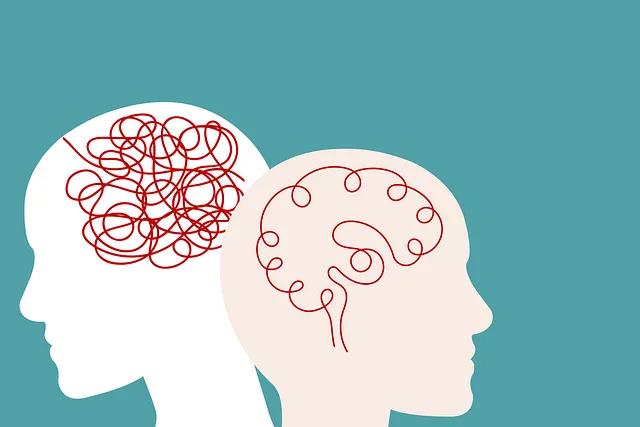Wheat Ridge's Kaiser provides innovative inpatient mental health services, balancing traditional hospital care with integrated primary care models. Their approach emphasizes evidence-based techniques like Mood Management, cultural competency, and proactive management to prevent symptom exacerbation. Crisis intervention strategies focus on self-awareness exercises, effective communication, burnout prevention for healthcare providers, and tailored therapy. Through swift assessment, tailored interventions, and stress workshops, Kaiser aims to empower patients with coping skills, enhance resilience, and improve quality of life. Case studies from Wheat Ridge's Kaiser highlight the practical application of crisis intervention strategies, shaped by advocacy for accessible mental health policies.
In times of crisis, effective intervention can make a profound difference. This article delves into crisis intervention strategies, providing a comprehensive guide for professionals. We explore key components of successful interventions, compare services at Wheat Ridge and Kaiser, and offer real-world case studies. Understanding crisis management is essential, especially when navigating the complexities of inpatient mental health care. Learn how to assess and mitigate risks, ensuring the best outcomes for those in need.
- Understanding Crisis Intervention: A Basic Overview
- Wheat Ridge vs Kaiser: Inpatient Mental Health Services Compared
- Key Components of Effective Crisis Intervention Strategies
- Guidance for Professionals: Assessing and Managing Mental Health Crises
- Real-World Application: Case Studies and Best Practices
Understanding Crisis Intervention: A Basic Overview

Crisis intervention is a vital process designed to provide immediate support and guidance during times of intense emotional distress or critical situations. It aims to help individuals navigate through crises, offering practical solutions and strategies to enhance their coping abilities. This approach is particularly crucial in settings like Wheat Ridge, where access to mental health services, including inpatient care at Kaiser, plays a significant role in managing acute mental health crises.
Understanding crisis intervention involves recognizing the importance of swift action and tailored support. It requires professionals to possess emotional intelligence, enabling them to connect with individuals in distress and assess their unique needs. By applying evidence-based techniques, such as those found in Mood Management programs, interveners can foster a sense of safety, validate emotions, and promote positive decision-making. Moreover, advocacy within mental health policy analysis is essential to ensure that resources like inpatient care are readily available when needed, reflecting the broader goals of improving access to quality mental healthcare.
Wheat Ridge vs Kaiser: Inpatient Mental Health Services Compared

When comparing Wheat Ridge and Kaiser in terms of inpatient mental health services, several key differences stand out. Both are healthcare providers with a focus on mental well-being, but their approaches and resources vary significantly. Wheat Ridge offers a more traditional hospital setting with specialized units for different mental health needs. This allows for intensive treatment and around-the-clock care, which is crucial for patients facing severe crises or experiencing acute episodes of psychosis or depression. On the other hand, Kaiser emphasizes a more integrated healthcare model where mental health services are seamlessly woven into primary care settings. This approach prioritizes proactive management and ongoing support, encouraging positive thinking and early intervention to prevent exacerbation of symptoms.
In terms of cultural competency training for mental health professionals, Kaiser has been at the forefront in implementing comprehensive programs that prepare staff to effectively serve diverse patient populations. These initiatives ensure that patients from various backgrounds receive culturally sensitive care tailored to their unique needs. Conversely, while Wheat Ridge also offers training in cultural competency, its focus is more on clinical skills and crisis management, leaving some gaps in addressing the nuanced aspects of delivering mental health services across different cultures. Enhancing these areas could contribute significantly to both providers’ overall ability to provide equitable, effective care for all individuals seeking inpatient mental health services.
Key Components of Effective Crisis Intervention Strategies

When it comes to crisis intervention strategies, several key components stand out as essential for effective support. One of the foundational aspects is self-awareness exercises. Encouraging individuals to pause, reflect, and identify their emotions and thoughts during a crisis can help them gain perspective and make better decisions. This is particularly crucial in settings like Wheat Ridge, where healthcare providers at Kaiser may encounter patients facing mental health challenges. By fostering self-awareness, both patients and professionals can navigate turbulent situations with increased resilience.
Moreover, communication strategies play a pivotal role. Clear, empathetic, and non-judgmental communication helps de-escalate tensions and establishes trust. Healthcare providers in Wheat Ridge should be adept at listening actively, validating emotions, and using calming language to support patients during crises. Incorporating burnout prevention strategies for healthcare providers is also vital. Ensuring professionals have adequate resources, support systems, and opportunities for self-care prevents them from experiencing burnout, enabling them to maintain composure and offer consistent care.
Guidance for Professionals: Assessing and Managing Mental Health Crises

When faced with a mental health crisis, professionals such as those at Wheat Ridge’s Kaiser facility play a vital role in assessment and management. The initial step involves swiftly identifying the nature and severity of the issue. This critical phase requires trained eyes to recognize signs of distress, whether it be acute depression, anxiety attacks, or psychotic episodes. Professionals must also consider environmental factors that might have contributed to the crisis, such as recent life changes or trauma.
Guided by evidence-based practices, Kaiser’s inpatient mental health services aim to stabilize individuals and help them develop coping skills for long-term recovery. This process may involve therapy sessions tailored to individual needs, medication management, and participation in stress management workshops organized by the organization. By fostering Mental Health Awareness, these strategies empower individuals to navigate future challenges, ultimately enhancing their resilience and quality of life.
Real-World Application: Case Studies and Best Practices

In real-world settings, such as Wheat Ridge, understanding the practical application of crisis intervention strategies is vital. Kaiser’s inpatient mental health facilities in this region serve as a prime example, showcasing effective approaches and best practices. By examining case studies from these institutions, professionals can gain valuable insights into managing diverse crises. For instance, successful implementation of community outreach programs has been linked to improved patient outcomes and enhanced recovery rates.
The Mental Health Policy Analysis and Advocacy plays a crucial role in shaping these strategies. By advocating for policies that support crisis intervention, communities like Wheat Ridge can ensure accessible and comprehensive care. Moreover, confidence-boosting techniques employed by Kaiser’s staff have proven effective in empowering individuals to navigate their mental health journeys. These practices highlight the importance of combining clinical expertise with community engagement for optimal crisis management outcomes.
Crisis intervention is a vital field, particularly with the increasing demand for accessible mental healthcare. By comparing services like those offered at Wheat Ridge and Kaiser, we gain insight into the importance of comprehensive strategies. Effective crisis interventions rely on a blend of assessment skills, rapid response, and tailored support. Professionals must be equipped to navigate complex situations, as demonstrated in real-world case studies. Understanding these key components and best practices ensures that individuals in crisis receive the appropriate care, fostering better outcomes and enhanced well-being. When implementing guidance, it’s crucial to consider both established models like Wheat Ridge and innovative approaches, ensuring that mental health services keep pace with evolving needs.






